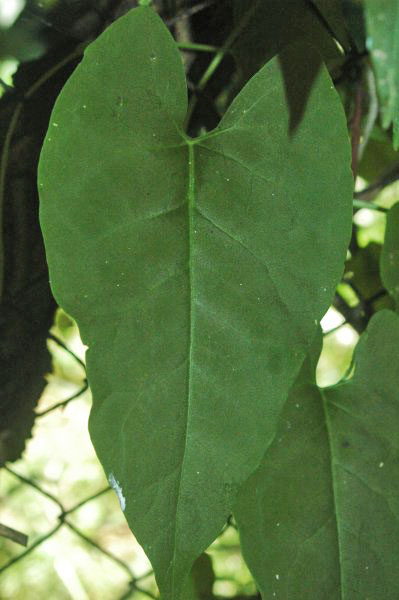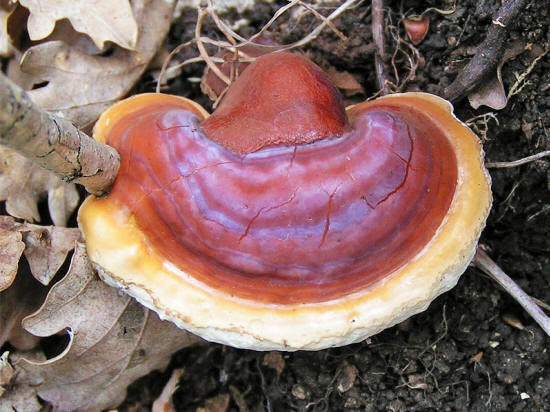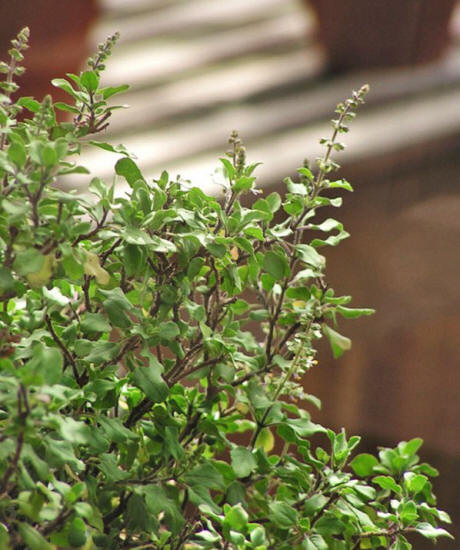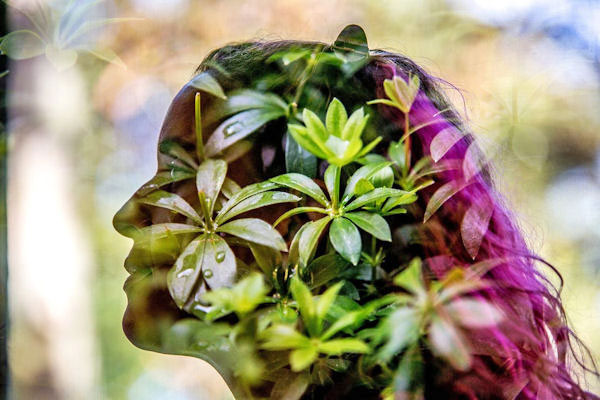1. He Shou Wu (Fo-Ti)

Source
In
Daoist
philosophy, He Shou Wu has long held a special place as
one of the foremost longevity tonics in the world.
As the legend
goes,
Li Ching-Yuen, a Chinese herbalist and Qigong master
born in the late 1600's credits He Shou Wu and a handful of
other special herbs as keeping him alive for nearly 256 years.
And while that
may be a stretch for many to believe, recent scientific research
into the plant has indeed discovered that it does have
life-extending properties. [1]
He Shou Wu has
been credited with reversing many diseases, DNA protection and
repair, and extending lifespan in a number of studies. [2]
It also
inhibits the MAO-B enzyme that correlates to measurable
life-extending and health-enhancing effects. [3]
What is less
well known about the plant, however, is that it is quite
activating on a spiritual level. In particular, He Shou Wu is a
powerful plant for enhancing one's intuitive perception and
abilities.
In Daoist
philosophy, He Shou Wu is classified as a Shen and Yin tonic.
Shen translates to "spirit" and anything with Yin properties,
which correlates to the feminine element/energy, promotes
receptivity.
Therefore, He
Shou Wu is an herb that makes us "receptive to spirit," which
the more sensitive among us will definitely notice after
consuming the plant for any length of time.
Users of He
Shou Wu often notice a distinct increase in creativity,
inspiration, and intuitive guidance, making it an important herb
for artists, meditators, or anyone seeking to expand their
experience of reality in profound ways.
And as
incredible as these properties I've just discussed are, He Shou
Wu's benefits don't end here.
The plant has a
wide range of health benefits from deep cellular rejuvenation to
enhancing libido and more, which you can learn about in 'Herb
of Intuition and Longevity - The
Miraculous Health Benefits of He Shou Wu (Fo-Ti).'
I recommend
starting with a ¼ to ½ teaspoon daily and working up from there.
Most will
notice an overflow of inspired thoughts and intuitive insights
from even just a single dose of the plant, although in some
cases more time is needed to feel its effects.
2. Reishi

Source
Affectionately
known in the East as the "Mushroom of Immortality" and "Mushroom
of Spiritual Potency," when researching
Reishi it quickly becomes
obvious that this is no ordinary natural medicine.
In
Daoist philosophy Reishi
occupies one of the top spots as the most revered
health-boosting herbs and with good reason - it affects
virtually every system in the body and mind positively in some
way shape or form.
And this isn't
just ancient hyperbole either.
Reishi has a
substantial amount of modern scientific research behind it and
is used in hospitals throughout Asia to treat difficult disease
like cancer. [4]
Suffice it to
say that this is a powerful plant. And while it is an excellent
immune tonic, ancient healers often used it more for its
spiritually activating properties.
Like He Shou
Wu, Reishi is also a powerful Shen tonic, meaning it is an
herb that nurtures the spirit.
However,
Reishi's spiritual properties are a bit different than He Shou
Wu's in practical terms. Reishi works to profoundly relax the
nervous system, calm the mind, and induce a state of relaxed
focus and flow, for which it has long been valued by spiritual
seekers, meditators, and those looking to relieve the stresses
of daily life.
In my
experience Reishi creates a noticeable shift in time perception
- in some way, shape or form it makes time seem to move more
slowly without slowing your mind and body down.
This has a
Matrix-like effect (as in the movie) where you are
able to process and perceive more in less time without feeling
stressed or rushed. Another way to put it is that your mind
continues to move at normal speed but time slows down so you
effectively get more life per second without feeling rushed or
sped up.
Reishi is
relaxing without being sedating and could be likened to
"meditation in a pill," although different in its own unique
way. I hypothesize that some of the compounds in Reishi affect
the secretions of the
pineal gland, which controls
our perception of reality and time via various neuro-hormones,
among other things.
It's calming
effect on the nervous system likely also plays a role as well,
essentially freeing up bandwidth otherwise occupied by stress
signals for more perceptual and sensual data to flow into our
awareness more fluidly.
All of these
properties combine to produce a state and feeling of
hyper-awareness and hyper-perception that is typically an
infrequent experience for most in their day to day lives.
An important
thing to note about using Reishi for spiritual purposes is that
in this case not all products are created equal.
The Daoists
believe that wild growing Reishi in its native habitat (dense,
high mountain forests in Northern Asia and China) contains more
Shen (spiritual) energy than Reishi grown in a greenhouse on
sawdust and wood chips, which is actually a quite common growing
medium these days.
As such, it is
extremely important to look for sustainably wild harvested
Reishi products.
3. Holy Basil (Tulsi)

Source
Holy Basil has become a
legendary part of Hindu culture over the last five thousand or
so years, adorning houses and temples throughout India and
earning it revered names such as "The Elixir of Life" and
"Mother Medicine of Nature."
With a wide
range of impressive health benefits, it does everything from
powerfully reducing stress and calming anxiety to balancing
blood sugar, restoring proper functioning of the endocrine
system, and more. [5-7]
However, less
well known about Holy Basil is its effects on the subtle energy
fields of humans.
Tulsi is a
powerful bio-energetic field harmonizer, meaning that it
restores and balances the subtle electromagnetic fields
generated by the mind and body that are becoming increasingly
recognized by forward-thinking researchers and physicians as an
important factor in human health.
In yogic
philosophy, Tulsi is considered to be one of a handful of unique
herbs that is able to balance the chakras, which are energy
centers that interpenetrate the subtle and physical body in
areas with unusually high nerve density.
Holy Basil has
also long been a favorite of meditators in India and throughout
the world who use the plant to help calm the chatter of the mind
and body, allowing users to enter deeper states of awareness
more easily.
Holy Basil can
be had as tea or as more concentrated extracts in capsules and
tinctures.
Either of these
is fine to reap its benefits, and daily use is not needed to
feel its effects, although more profound shifts in health often
accompany prolonged use.





